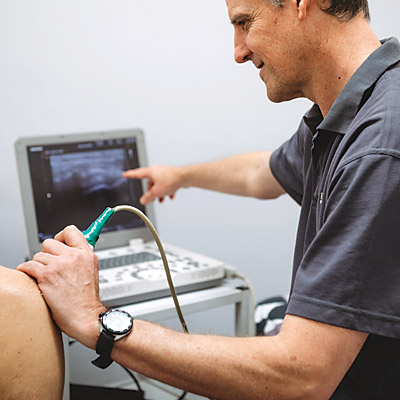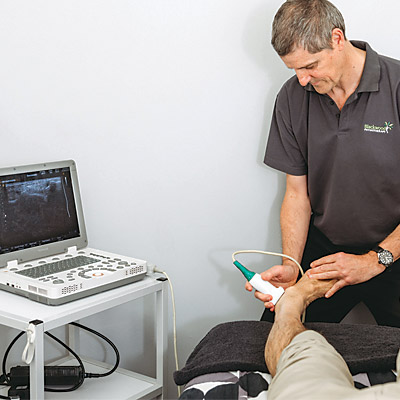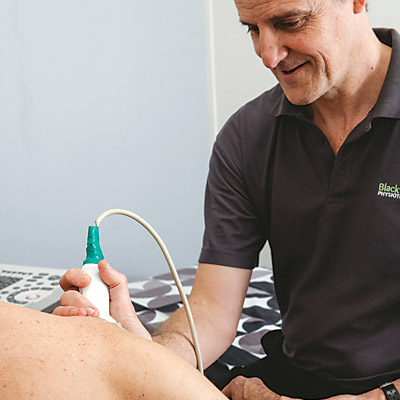What is Rehabilitative Ultrasound Imaging (RUSI)?
RUSI scans utilise Real Time Ultrasound (RTUS) technology to visualise the soft tissues of the body such as ligaments, tendons and muscles. The human eye has limitations – they cannot see below the skin – whereas RTUS can, giving the operator a clearer picture of what is going on inside your body. This is really a whole new level of assessment not provided accessible.
You may be familiar with RTUS – it is the equipment used during pregnancy to produce images of unborn babies, or you may have had an injury assessed in the past using this equipment at a Radiology Centre.
In a trained technicians hand this equipment can be used to assess for injuries to soft tissues like ligaments, tendons and muscles. It can also be used to assess how muscles are firing (or interacting) around joints during movement. This is very important in certain areas of the body where muscle activity around a joint is essential for pain free function (such as the shoulder).
The RTUS can be used for retraining of these “muscle firing” patterns as the operator can allow the client to actually “see” their different muscle groups firing.
RTUS can also be used to see how well an injury is healing – or indeed what stage of healing it is in. This can be essential for sports people who are considering returning to sport or training and want to be sure that they are not risking further injury.




